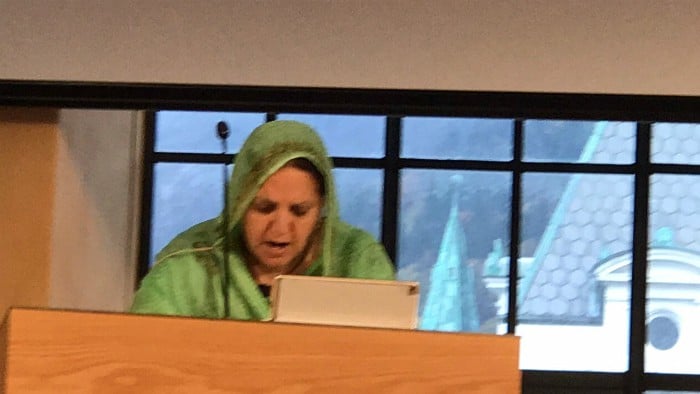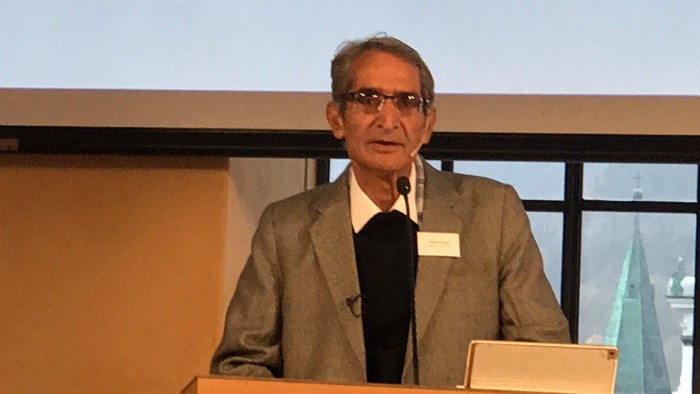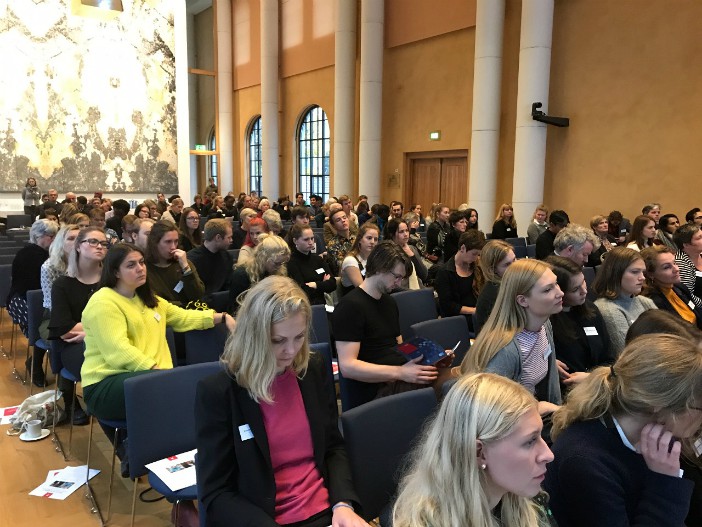Well-know Kashmiri human rights activists Paveena Ahangar and Parvez Imroz will receive on Sunday Norway’s Rafto Prize for human rights for their unending struggle for the rights of Kashmiris.

Ahangar started her struggle for the protection of the civilian population after her 17-year-old son was abducted by Indian security forces in 1991. The APDP organises peaceful protests and provides practical assistance to survivors of violence. .
Parvez is a lawyer and a leading intellectual and uses legal means to ensure citizens of IoK are provided with basic human rights. His organisation Jammu Kashmir Coalition of Civil Society works for human rights and non-violent solutions to the Kashmir issue.

Imroz, who is the President of Jammu and Kashmir Coalition of Civil Society (JKCCS) and Parveena Ahangar, founder and chairperson of the Association of Parent of Disappeared Persons in Indian-Held Kashmir, urged the civilized world to help the oppressed people of Jammu and Kashmir suffering brutalities since long, in an address to an international conference in Bergen on Saturday.
Parveena Ahangar broke down describing the atrocities she has witnessed in the beautiful valley broke down, and lamented that Kashmiris’ voices are not being heard despite decades of struggle. She thanked of RAFTO Foundation for the award and said it is a first an international organisation invited them for an award on an international forum.
She demanded that crimes against humanity in Kashmir be stopped and rights of the Kashmiris be given their rights. Disappeared people should be recovered and the Indian army personnel involved in the brutalities should be punished, she demanded.
Imroz in his address said that 8,000 people in IoK are missing and their relatives are still waiting for them to.
They have no knowledge of the whereabouts of their loved ones. They raise questions but nobody answers them,” Imroz told attendees.
He said that India has deployed 700,000 security personnel in the valley to oppress its residents, demanding that the country end brutalities.
During the question-answer session, Imroz said that India’s attitude is not reconciliatory and it does not want a non-violent solution to the Kashmir issue. He said an early, peaceful resolution looks distant to them because of India’s attitude.

The conference was arranged by the foundation was attend by a number of the intellectuals, professors, diplomats, researchers and human rights activists from different parts of the world.
Various intellectuals and academicians also spoke at the conference.
The speakers highlighted the historical, cultural, geographical and social aspects of Kashmir and pointed out that Kashmir is a highly ignored issue which needs special attention of the world community. They said that the award for two leading defenders of human rights would help once again raise the issue at international level. The world would understand the sensitivity of the issue leading to a plan for peaceful resolution of the problem, the speakers said.
Prominent Dutch human rights activist Marjan Lucas expressed hope that the award would give more recognition to condition of human rights in Kashmir.
On the occasion, Chairman Kashmir Council EU Ali Raza Syed who travelled from Brussels to Bergen Norway, said the RAFTO Prize laureates have been struggling against the violation of human rights in IoK since a long time.
Mr Ali Shahnawaz Khan, Executive Director of Norway-based Kashmir Scandinavian Council, said that this is the second most important achievement in the context of Kashmir issue after the UN resolution on the topic. It will help in further highlighting the issue at international level, he said.
Pakistan’s Ambassador to Norway Riffat Masood said the voice of the oppressed people of Kashmir has been heard and it will create more awareness on the issue.
Forced abductions of and violence against men, women, and youth are rampant in IHK. A large number of people have been killed and thousands have disappeared so far.
Thousands of women are waiting for their children, husbands and brothers, who are missing or abducted by the security forces in recent decades.





